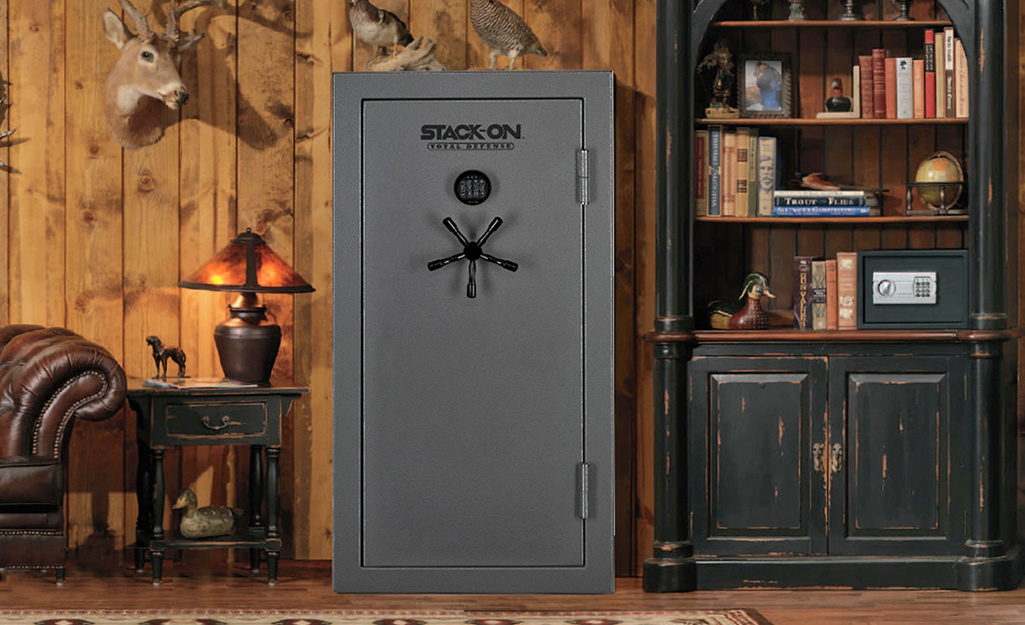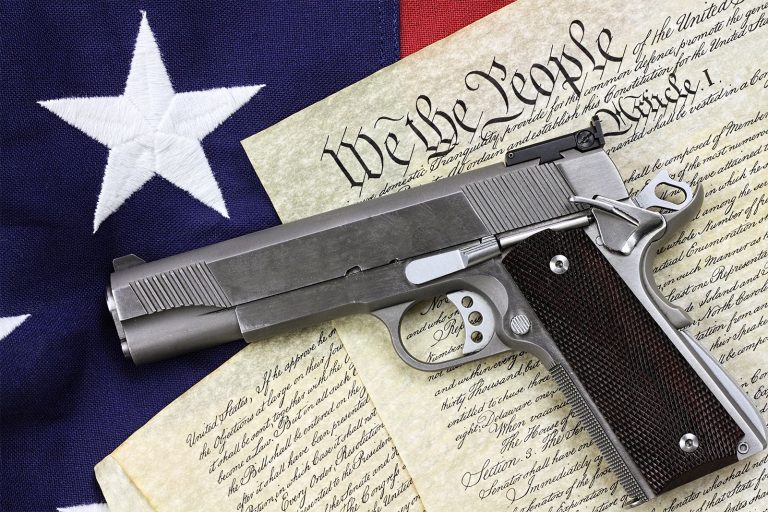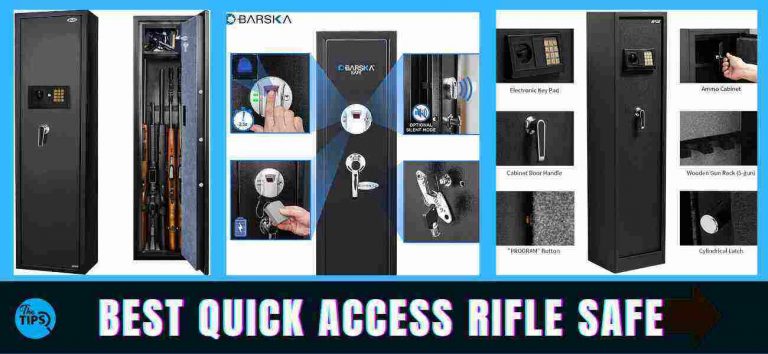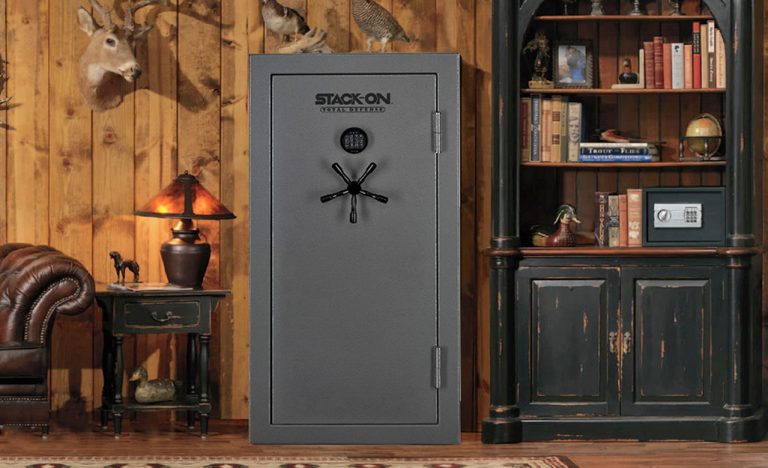How to Get a Gun Safe Into Your House Safely
To get a gun safe in your house, measure doorways and hallways, then use a dolly or professional movers. Ensure the path is clear.
Installing a gun safe at home is essential for securing firearms. It prevents unauthorized access and protects against theft. Start by measuring all entry points to ensure the safe fits. Choose a location that’s accessible yet discreet. Use a heavy-duty dolly for transport, or hire professional movers for large safes.
Make sure the path is clear of obstacles to avoid damage. Once positioned, anchor the safe to the floor for added security. Proper installation ensures your firearms are safely stored, enhancing household safety.
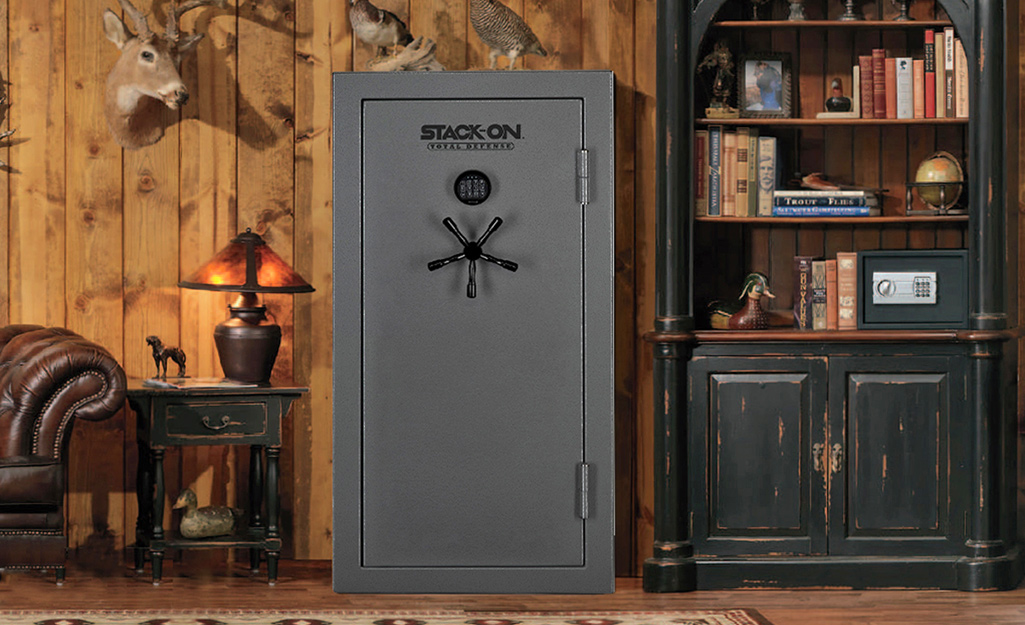
Credit: www.homedepot.com
Choosing The Right Gun Safe
Picking the right gun safe is crucial. It protects your firearms and ensures safety at home. This section will guide you through the key factors to consider.
Size And Capacity
The size and capacity of a gun safe are vital. You need to know how many guns you own. Also, consider future purchases. Choose a safe that fits your current and future needs. Make sure it fits well in your chosen space at home.
| Number of Guns | Safe Size |
|---|---|
| 1-2 | Small |
| 3-5 | Medium |
| 6-10 | Large |
| 10+ | Extra Large |
Material And Build Quality
The material and build quality determine the durability and security of a gun safe. Look for safes made of thick steel. Thicker steel offers better protection. Check for a strong locking system. Dual or triple locking systems are more secure.
- Thick Steel: Look for 10-gauge or thicker steel.
- Locking System: Choose dual or triple locking for better security.
- Fire Resistance: Ensure the safe is fire-resistant for added protection.
Investing in a high-quality gun safe is essential. It ensures the safety of your firearms and your family.
Placement Of Your Gun Safe
Choosing the right placement for your gun safe is crucial. It ensures both security and accessibility. Proper placement can prevent unauthorized access and protect your firearms from damage. Here are some key considerations for placing your gun safe in your house.
Hidden Locations
Hiding your gun safe can enhance security. Here are some hidden locations:
- Behind a false wall: Create a secret space behind a wall.
- Under the stairs: Utilize the space beneath staircases.
- In a closet: Conceal it behind clothes or boxes.
- Basement corners: Hide it in less frequented basement areas.
Accessibility Considerations
Your gun safe should be easily accessible. Think about:
- Proximity to sleeping areas: Keep it close for emergencies.
- Height: Ensure it’s reachable for all authorized users.
- Pathways: Avoid obstructing your path to the safe.
- Lighting: Place it where there is good lighting.
Balancing security and accessibility is key. Choose a spot that hides your safe yet allows quick access. Make sure all household members know its location and how to access it.
Installation Tips
Proper installation of a gun safe ensures maximum security. Follow these tips to install your gun safe correctly.
Anchoring The Safe
Anchoring your gun safe is crucial for security. A well-anchored safe prevents thieves from moving it.
Here are the steps to anchor your gun safe:
- Choose a solid surface, preferably concrete.
- Use a drill to create holes in the floor.
- Insert anchor bolts into the holes.
- Position your safe over the bolts.
- Tighten the bolts to secure the safe.
Important: Always use the anchor bolts provided by the manufacturer.
Avoiding Common Mistakes
Avoid these mistakes to ensure your gun safe is secure:
- Incorrect Placement: Never place your safe in a visible location.
- Improper Anchoring: Ensure the safe is anchored to a solid surface.
- Ignoring Manufacturer’s Instructions: Always follow the guidelines provided by the manufacturer.
Following these tips will help you install your gun safe securely.

Credit: www.reddit.com
Security Features
Ensuring the security of your gun safe is crucial. High-quality security features protect against unauthorized access. Let’s explore the key security features for gun safes.
Lock Mechanisms
The lock mechanism is the first line of defense. Different types include:
- Mechanical Locks: Reliable and durable. They need no batteries.
- Electronic Locks: Easy to use. They offer quick access.
- Biometric Locks: Use fingerprints. They provide high security.
Choose a lock mechanism that suits your needs. Consider ease of use and security level.
Alarm Systems
Alarm systems are another layer of security. They alert you to unauthorized attempts. Types of alarm systems include:
- Motion Sensors: Detect movement. They trigger alarms.
- Vibration Sensors: Detect tampering. They activate alarms.
- Wireless Alarms: Connect to your phone. They send alerts.
Install an alarm system to enhance security. It provides peace of mind.
Maintaining Your Gun Safe
Ensuring the longevity and reliability of your gun safe is crucial. Regular maintenance helps keep your firearms secure and the safe in top condition. Below are some essential tips for maintaining your gun safe.
Regular Inspections
Perform regular inspections of your gun safe to spot any issues. Check the door and locking mechanism for smooth operation. Look for signs of rust or damage. Ensure the hinges and bolts are secure. Inspect the interior for any moisture or mold.
Cleaning And Lubrication
Cleaning and lubricating your gun safe is essential for proper function. Use a mild soap and water solution to clean the exterior. Avoid harsh chemicals that can damage the finish. Wipe down the interior with a dry cloth to remove dust.
Apply a light coat of gun-safe lubricant to the locking bolts and hinges. This helps keep the moving parts operating smoothly. Do this every few months or as needed. Lubrication prevents rust and ensures easy access to your firearms.
Keep your gun safe in a dry, climate-controlled environment. This prevents moisture buildup and potential rust issues. Use a dehumidifier if necessary.
Fire And Water Protection
Having a gun safe in your home is essential for security. But ensuring fire and water protection is equally important. Your firearms and valuables need safeguarding from fire and water damage. Let’s explore the best options available to protect your belongings.
Fireproof Safes
Fireproof safes are designed to withstand high temperatures. They keep your valuables safe during a fire. Look for safes with a high fire rating. A good fire rating ensures protection for at least 1 hour. Consider the safe’s construction material. Steel is a reliable choice. Check for insulation inside the safe. This helps keep the interior cool. Fireproof safes often include a seal that expands in heat. This seal keeps smoke and flames out.
Water-resistant Options
Water-resistant safes protect against floods and leaks. These safes have tight seals to keep water out. Check the water resistance rating. Higher ratings offer better protection. Some safes provide protection for up to 72 hours underwater. Look for safes with waterproof gaskets. These gaskets create a barrier against water. Consider safes with additional features like humidity control. This helps prevent moisture damage inside the safe.
| Feature | Fireproof Safes | Water-Resistant Safes |
|---|---|---|
| Material | Steel | Steel with waterproof gaskets |
| Protection Time | 1 hour or more | Up to 72 hours underwater |
| Seal | Expanding seal | Waterproof gaskets |
- Choose a safe with both fire and water protection.
- Ensure the safe fits your storage needs.
- Consider the safe’s weight and placement in your home.
Legal Considerations
When placing a gun safe in your home, legal considerations are vital. Understanding the laws and rules ensures safe and lawful storage. This section covers essential legal aspects for gun safes in your house.
Local Laws And Regulations
Every area has unique gun storage laws. Some places require specific types of safes. Others may mandate safes with certain features. Ensure you check your local laws. Contact local law enforcement or a legal expert for guidance.
Here is a table of common local regulations:
| Location | Requirement |
|---|---|
| California | Certified safe or DOJ-approved lock |
| New York | Safe with a locking mechanism |
| Texas | No specific safe requirement |
Safe Storage Compliance
Safe storage laws ensure firearms are inaccessible to unauthorized users. Here are a few compliance points:
- Keep guns unloaded when not in use.
- Store ammunition separately from firearms.
- Use a safe that meets security standards.
Compliance with storage laws protects your family and prevents accidents. Always verify that your safe meets all legal standards.
Consider these steps for safe storage compliance:
- Buy a certified gun safe.
- Regularly check the safe’s functionality.
- Train family members on safe storage practices.
Following these guidelines ensures safe and legal gun storage in your home.
Additional Safety Tips
Ensuring your gun safe is secure is a priority. Besides the basics, some additional tips can help enhance safety. Here are some strategies to make your home safer.
Educating Family Members
It’s essential to teach family members about gun safety. Ensure everyone knows the importance of keeping the gun safe locked. Children should understand that guns are not toys. Use simple language to explain the risks. Regularly remind your family about these safety rules.
Emergency Access Plans
Prepare a plan for accessing the gun safe during emergencies. Share this plan with trusted adults in the house. Keep the combination or key in a secure but accessible place. Practice drills to ensure everyone knows what to do. Ensure the plan is straightforward and easy to follow.
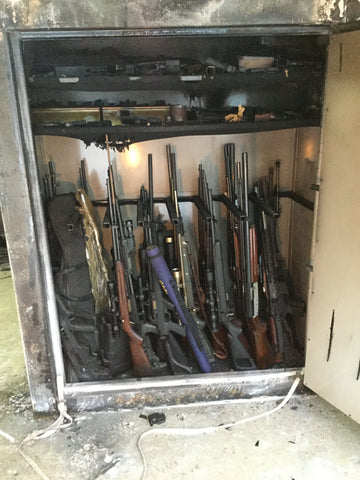
Credit: www.sturdysafe.com
Frequently Asked Questions
How To Choose The Right Gun Safe?
Choosing the right gun safe involves considering size, security features, and location. Measure your space, assess security levels, and choose a reputable brand.
Where Should I Place My Gun Safe?
Place your gun safe in a secure, discreet location. Common spots include closets, basements, or reinforced rooms, ensuring it’s hidden from plain view.
How Do I Move A Heavy Gun Safe?
To move a heavy gun safe, use a dolly, enlist help, and plan your route. Consider professional movers for safety and convenience.
What Are Essential Features Of A Gun Safe?
Essential features of a gun safe include fire resistance, solid steel construction, reliable locks, and enough space for your firearms and accessories.
Conclusion
Securing a gun safe in your house ensures safety and peace of mind. Follow the steps outlined to choose and install the right safe. Regular maintenance and proper usage are key. Protect your family and valuables by investing in a reliable gun safe.
Stay informed and always prioritize safety at home.

